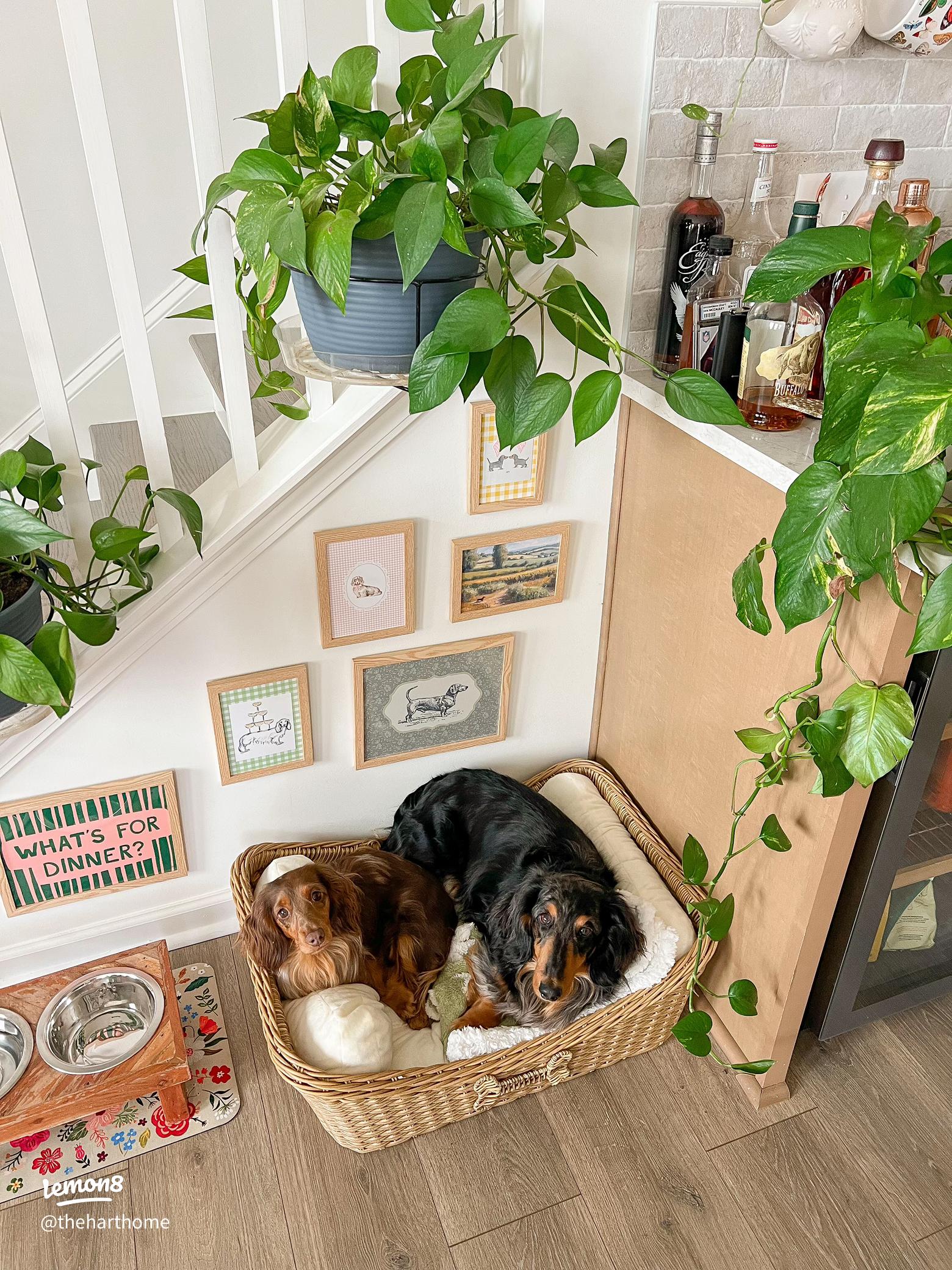Creating a safe, comfortable, and functional space for your dog inside your home is more than just setting up a bed—it’s about understanding their needs and making thoughtful adjustments that promote health, happiness, and harmony. Whether you live in a small apartment or a spacious house, organizing your dog’s space can improve their behavior and your daily routine.
Why Your Dog Needs a Dedicated Space 🏡
A designated area helps your dog feel secure, reduces anxiety, and provides a go-to spot for rest and calm. Here’s why this matters:
- Predictability: Dogs thrive on routine and structure.
- Behavioral control: Prevents roaming, chewing, or accidents.
- Health benefits: Clean and comfortable environments reduce risks of injury or illness.
- Training support: Reinforces rules and boundaries.
Choosing the Right Location
Consider Your Dog’s Personality
- Shy or anxious dogs: Prefer quieter areas away from noise.
- Sociable or energetic dogs: Like spots with partial visibility of household activity.
Good Placement Ideas
- Corner of the living room: Allows inclusion in family time without constant interaction.
- Under a staircase: Cozy, enclosed, and often unused.
- Spare room or laundry area: Works well for dogs who need downtime.
- Near a window (but not too exposed): Some dogs love watching the world; others find it overstimulating.
Avoid:
- Hallways with heavy foot traffic
- Near loud electronics or doors
- Exposed, open areas with no boundaries
Essential Elements of a Dog-Friendly Space
1. Comfortable Bedding
- Choose orthopedic or memory foam beds for support.
- Washable covers are a must.
- Avoid beds with exposed zippers or seams for chewers.
2. Food and Water Station
- Use spill-proof bowls and place them on a mat.
- Keep water accessible 24/7, away from bedding to prevent messes.
- Don’t leave food out all day unless free feeding is recommended.
3. Toy Basket or Station
- Rotate toys weekly to maintain interest.
- Include chew toys, interactive toys, and soft comfort toys.
4. Training and Safety Tools
- Crate (optional): Useful for training, travel, or quiet time.
- Baby gates: Block access to no-go zones.
- Pee pads: For puppies or seniors in training.
Keeping the Space Clean and Safe
Daily Maintenance
- Remove uneaten food, clean water bowls.
- Tidy toys and check for damage.
Weekly Routine
- Wash bedding, sanitize bowls and toys.
- Vacuum or sweep fur and dirt.
Safety Tips
- No exposed wires or cords.
- Keep cleaning products and small objects out of reach.
- Use non-slip mats on hard floors.
Organizing by Dog Size
| Dog Size | Space Needs | Suggested Setup |
|---|---|---|
| Small (Chihuahua) | Compact area, soft surfaces | Small bed, raised bowls, cozy blankets |
| Medium (Cocker Spaniel) | Moderate space for movement | Mid-size crate, corner setup, organized toy zone |
| Large (Golden Retriever) | More room to stretch | Oversized bed, ample air flow, space near A/C or fan |
Creating a Multi-Use Dog Zone
You can organize a multifunctional area that serves your dog and your home:
- Bench with storage + cushion: Dual-purpose for seating and toy storage.
- Bookshelf cubbies: Hold treats, brushes, leashes, and grooming tools.
- Wall hooks: For leashes, poop bags, and harnesses.
- Foldable playpen: Creates boundaries without permanent fixtures.
Dog Space for Apartments vs. Houses
Apartments
- Compact but cozy.
- Use corners efficiently.
- Favor foldable or multi-use furniture.
Houses
- More layout flexibility.
- Possible to use entire rooms or underutilized spaces.
- Can include indoor potty areas for specific needs.
When You Have Multiple Dogs
- Provide individual beds or crates to avoid resource guarding.
- Separate feeding stations.
- Shared toy area, but monitor for tension.
- Ensure every dog has a spot they can retreat to undisturbed.
Final Touches to Make It Feel Like “Home”
- Blankets with your scent: Offers comfort when you’re away.
- Low, calming music: Soothes anxious dogs.
- Scented sprays: Use dog-safe calming pheromones.
Avoid:
- Overcrowding the space.
- Too many visual distractions.
- Keeping the area near HVAC vents or loud machines.
Wrapping Up: A Space That Supports Wellness
A well-organized indoor space is more than a resting spot—it’s a sanctuary that helps your dog feel grounded and secure. With a few thoughtful choices, you can create an environment where your dog feels calm, included, and loved.
When you invest in making your home dog-friendly, your dog rewards you with better behavior, greater trust, and lots of tail wags. 🐾

